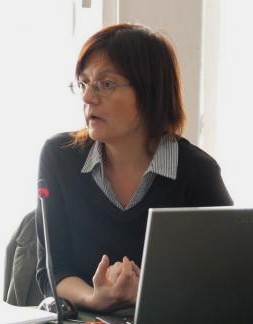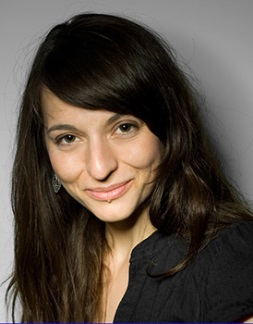The House of Europe in Sofia hosted an important and very up-to-date Bulgarian-Polish discussion, tackling migration in and out of the Continent. Bulgarian experts from the Center for the Study of Democracy participated in the event. The Polish analysts of migration processes came from their Institute of International Affairs and the Marek Karp Centre for Eastern Studies. Data says that in 2016 there were nearly 21 mln. citizens of third countries in the EU. GB, Germany, France, Spain and Italy host up to 80% of these people. There is this other statistics of 3rd countries’ citizens who received their permission to stay in an EU member-state for the first time in 2016 – those were 3.5 mln. Poland was ranked second among all EU member-states there – it received nearly 18% of these migrants. Most of them came from Ukraine, running away from the conflict in their motherland. “So, this proves that Poland now tops a new migration wave that we know very little about,” says Dr. Mila Mancheva of the Center for the Study of Democracy.
 “The labor migration of Ukrainian citizens to Poland is a relatively new process, quite intense though. There were over 1 million Ukrainians who settled in Poland in 2016. This trend has been deepening and the process has its serious impact on the Polish society. The truth is that this is not the only migration process inside Europe – those are various and legal labor migration is their basic component. At the same time it is rather political migration. Now, regarding the economic aspect of this migration, we all know the two major theses on the effects of labor migration. One says the effect is positive – it often results in higher working wages and unemployment rate reduction, with lower inflation and overall economic enlivening. The other thesis, unfortunately dominating the public debates, claims that labor migrants bring negative trends to the recipient societies, stealing the locals’ jobs, increasing unemployment and often trying to abuse the social security systems. Illegal work dumps the labor price of local people etc.”
“The labor migration of Ukrainian citizens to Poland is a relatively new process, quite intense though. There were over 1 million Ukrainians who settled in Poland in 2016. This trend has been deepening and the process has its serious impact on the Polish society. The truth is that this is not the only migration process inside Europe – those are various and legal labor migration is their basic component. At the same time it is rather political migration. Now, regarding the economic aspect of this migration, we all know the two major theses on the effects of labor migration. One says the effect is positive – it often results in higher working wages and unemployment rate reduction, with lower inflation and overall economic enlivening. The other thesis, unfortunately dominating the public debates, claims that labor migrants bring negative trends to the recipient societies, stealing the locals’ jobs, increasing unemployment and often trying to abuse the social security systems. Illegal work dumps the labor price of local people etc.”
Anna Pilat, an analyst with the Institute of Public Affairs explains what the economic effect of Ukrainian migration to Poland is:
 ‘’We must warn the public that this is the beginning of the discussion. The phenomenon is quite new and the social dumping subject has not been studied yet. We don’t see empirical data, confirming that the high level of Ukrainian migration has a negative effect. In fact, due to the large number of migrants, last year we had a significantly lower unemployment rate on previous years. At the same time the Polish legal system on migration issues has been designed to defend the interests of Polish employees. Whenever our employer declares his intention to hire a citizen from outside the EU, he must prove that he can’t find a Polish worker for the position. It is a topic of another conversation whether this is real or fictive in some cases. Besides that, as of 2014 we’ve had this seasonal workers’ directive, also protecting the system from social dumping. It sets some minimum working conditions and wages for the coming workers, so that the latter are not too big competition. The rules regulate accommodation, contract signing and payment in sectors like tourism and agriculture.’’
‘’We must warn the public that this is the beginning of the discussion. The phenomenon is quite new and the social dumping subject has not been studied yet. We don’t see empirical data, confirming that the high level of Ukrainian migration has a negative effect. In fact, due to the large number of migrants, last year we had a significantly lower unemployment rate on previous years. At the same time the Polish legal system on migration issues has been designed to defend the interests of Polish employees. Whenever our employer declares his intention to hire a citizen from outside the EU, he must prove that he can’t find a Polish worker for the position. It is a topic of another conversation whether this is real or fictive in some cases. Besides that, as of 2014 we’ve had this seasonal workers’ directive, also protecting the system from social dumping. It sets some minimum working conditions and wages for the coming workers, so that the latter are not too big competition. The rules regulate accommodation, contract signing and payment in sectors like tourism and agriculture.’’
As far as Poland-based Bulgarian workers were concerned, experts said that there was this quite serious group of labor migrants, but those were mobile and also got jobs in Slovakia, Poland, the Czech Republic etc. without getting permanent residence. The answer to the question on the return of the numerous Polish migrants from the early 1990s to their motherland was straight – some of them had begun to get back, attracted by the good social system of their own country.
English version: Zhivko Stanchev
For more than a week now, the story of a family of breeders raising local breeds of sheep has captured the attention of not only the Bulgarian public, but also of compatriots abroad. Instead of following the drama in Parliament and the struggle for..
Who said Bulgarians were grumpy pessimists? Take a stroll through Sofia's Christmas bazaars and meet the cheerful crowd. The festive decorations, music, merry-go-rounds and stalls overflowing with treats and handmade souvenirs can make the gloomiest..
Bulgarian studies are highly valued at the Bogdan Khmelnitsky State Pedagogical University in the Ukrainian city of Melitopol. So it comes as no surprise that the university is hosting the latest edition of the International Bulgarian Studies Readings,..
The 22nd edition of the "Bulgarian Christmas" charity performance will take place tonight at the Ivan Vazov National Theatre. The initiative is held..
Dear friends, We at Radio Bulgaria send you our warmest wishes for a Merry Christmas! May your hearts overflow with joy, your homes be filled..
For the fifth consecutive year, the Sketches of Sofia initiative have delighted Sofia's residents with gifts placed at the city's statues . Every year,..

+359 2 9336 661
